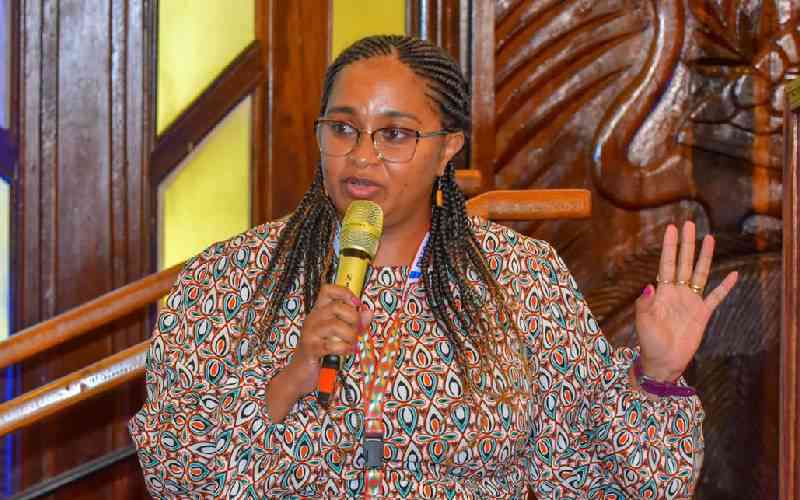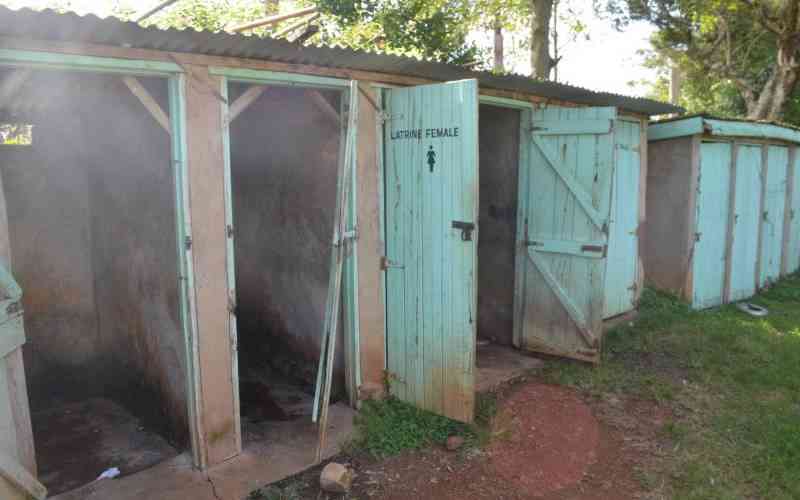
Father conversing with sad preteen daughter. [File Courtesy]
Speaking to your child about sex-related matters can be uncomfortable, to say the least. God forbid they are teenagers, they’ll give you the ‘ick’ and beg you to stop. But that discomfort is no excuse to sweep important matters under the rug and hope they will figure it out the way we did. Let’s be honest, figuring it out on our own was hard, confusing, and at times, dangerous. We owe it to our children to give them a heads-up on some of these things. That said, you can’t just bombard them with information; you need to set the tone. For example, asking your daughter about her periods while her three-year-old sibling is present may end up raising more questions from the toddler than getting answers from your daughter.
Parents need to understand that children will get information one way or another, so wouldn’t you rather that that information comes from you? Navigating this area is tricky, yes, but it’s necessary. In the Kenyan context, many parents shy away from such conversations due to cultural norms, embarrassment, or the belief that talking about sex encourages it. In reality, silence pushes children to learn from unreliable sources, peers, social media, or random websites that may not have their best interests at heart. That’s why parents should create private moments to speak with their children, ensuring the conversation is calm, honest, and age-appropriate. Postponing the talk doesn’t make it easier; it just leaves your child vulnerable.
We need to stop treating sexuality talks like a one-time “big talk.” They are an ongoing conversation, meant to evolve with your child. By fostering honest, respectful communication from an early age, you help your children grow into confident, informed, and responsible individuals. Remember: These conversations aren’t just about sex. They’re about love, identity, safety, consent, values, and the beautiful complexity of being human. When you discover that your 10-year-old has written a love letter, the instinct might be to punish them, but pause and ask yourself: What are they expressing, and what could they learn from this?
Parents must also understand that talking about sexuality does not encourage early sexual activity. Research shows that children who receive comprehensive, age-appropriate sex education are more likely to delay sexual activity and make better decisions when they do become sexually active. Start early. For young children, this could mean teaching correct names for body parts, explaining safe and unsafe touch, and encouraging them to speak up when something feels wrong. These lessons are protective and empowering.
You don’t have to wait for your child to ask questions. Use everyday moments, TV shows, news stories, and even overheard conversations as natural openings. For example, “You heard what they said on the news, what do you think about that?” This creates space for deeper discussions. And it’s perfectly okay to admit that you’re uncomfortable. Saying something like, “I didn’t grow up talking about this, so it feels a bit strange, but I want us to have this conversation because I care about you,” can build trust and openness.
If you’re unsure how to begin, reach out. Trained health workers, teachers, religious leaders who support youth empowerment, and parenting organisations can help. Tools like brochures, parenting workshops, or community forums are excellent starting points. And always remember, one conversation is not enough. Reassure your children that they can come to you with any questions, anytime, without fear of punishment or shame.
Miss Nthiana is a Reproductive Health Advocate at NAYA Kenya
 The Standard Group Plc is a multi-media organization with investments in media platforms spanning newspaper print
operations, television, radio broadcasting, digital and online services. The Standard Group is recognized as a
leading multi-media house in Kenya with a key influence in matters of national and international interest.
The Standard Group Plc is a multi-media organization with investments in media platforms spanning newspaper print
operations, television, radio broadcasting, digital and online services. The Standard Group is recognized as a
leading multi-media house in Kenya with a key influence in matters of national and international interest.











